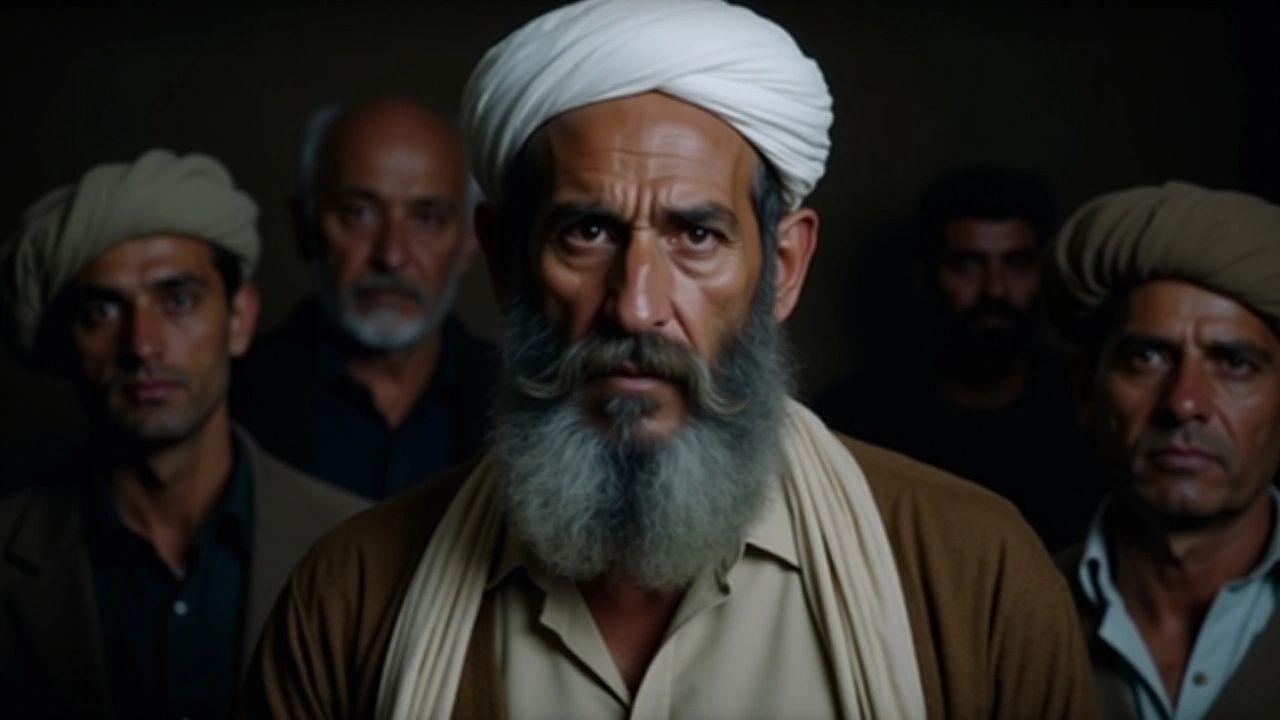Hezbollah Leadership Transition Amidst Israel-Lebanon Tensions: A New Era of Conflict
 Oct, 30 2024
Oct, 30 2024
Hezbollah's Leadership Turmoil
The landscape of Middle Eastern geopolitics has experienced a seismic shift with the recent death of Hezbollah’s long-standing leader, Hassan Nasrallah. Following a targeted Israeli air strike that led to Nasrallah's demise from inhaling toxic gases, Naim Qassem has stepped up as the new leader of the militant group. This transition occurs at a time of heightened tensions between Israel and Hezbollah, marking a crucial period for both parties. The air strike underscored Israel’s aggressive stance against entities it perceives as threats.
Israel's Relentless Pursuit
Israeli Defense Minister Yoav Gallant remarked that any emerging leader within Hezbollah would be 'temporary', a clear signal that Israel has no plans to ease its military activities aimed at weakening the group. These actions are part of Israel's broader strategy to combat and mitigate perceived threats from its neighboring territories. Gallant's statement was promptly reinforced by Israeli Prime Minister Benjamin Netanyahu, who has been vocal about Israel's capability and intent to reach any location in the Middle East deemed necessary to maintain national security.
The implications of these bold allegations cannot be understated. They speak to a broader narrative of persistent conflict, where Israeli military strategy involves surgical strikes and precision-based operations. In this vein, Netanyahu's warning to Iran and its allies within the region is stark: if they intend to mount an attack on Israel, Israel will act first. This message aims to preempt potential aggression and deter further hostility from Hezbollah and other Iranian proxies.
Regional Response and International Calls for Peace
The impact of Nasrallah's death created an immediate ripple effect across the Shia Muslim world. Protests broke out, particularly in areas where Hezbollah enjoys strong support, such as Pakistan's Shia communities. The Lebanese government, led by Prime Minister Najib Mikati, responded by instituting a national mourning period, albeit, details surrounding Nasrallah’s funeral remained elusive due to security concerns. Fear of an Israeli ground invasion has created a climate of apprehension within Lebanon, clouding the next moves in the region.
Amidst this escalating tension, calls for a truce have echoed from international leaders. U.S. President Joe Biden and the British government both stressed the importance of avoiding another full-scale war in the region. Biden’s plea for peace highlights the global stakes involved; an all-out conflict could have ramifications far beyond the borders of Israel and Lebanon, potentially drawing in other nations. Yet, despite these appeals, the resolution remains fragile as respective leaders double down on their rhetoric of preparedness and defense.
Hezbollah's Response to Ongoing Threats
Naim Qassem, now steering Hezbollah through this tumultuous period, has not minced words about Hezbollah’s readiness. The group has made clear its preparations for a potential Israeli ground offensive, promising to meet any incursions with formidable resistance. This declaration signifies a commitment from Hezbollah to not back down, thus maintaining the longstanding friction that characterizes its relationship with Israel.
Qassem's promise underscores a significant tactical stance—Hezbollah remains entrenched in its ideology of resistance, adhering to a legacy set forth by Nasrallah. As tensions endure, the risk of confrontation remains high, and the stakes for both Lebanon and Israel take on a formidable weight. This new leadership chapter for Hezbollah could either lead to a recalibration of strategies or a continuation of prior hostilities, depending on how each side chooses to progress.
The Broader Implications for the Middle East
The situation between Israel and Hezbollah places broader regional dynamics under scrutiny. With Iran vocal in its support of its allies, yet cautious not to engage directly by deploying forces to Lebanon or Gaza, the balance of power in the Middle East is delicate. Iran's assertion that local fighters can fend off Israeli aggression amplifies the stakes, promising a local yet potent endurance of conflict.
As Israel contemplates the next phase of its struggle against Hezbollah, the region holds its breath. Defense Minister Gallant suggests that upcoming military objectives aim to restore a semblance of stability, allowing northern Israeli residents who have been displaced by violence to return home. The complexities of this situation reflect a layered narrative of resilience, strategy, and foresight where every action taken has profound reverberations.
A Future Uncertain Yet Moldable
Ultimately, the progression of this conflict remains intricate and unpredictable. While both sides exhibit the readiness for defense—or offense—the exploration of dialogue perhaps remains the most compelling untried path. Israeli leaders have gone as far as to appeal directly to the Iranian populace, inviting them to imagine a region at peace where the shadow of current regimes no longer looms over their future.
Whether or not these entreaties will find fertile ground is an open question, but they underscore an essential truth: amid the entanglements of war, the potential for peace continues to flicker, albeit dimly. It is within this context that Middle Eastern dynamics have the opportunity to redefine themselves, nurturing visions for a future that, while uncertain, remains possible to mold with careful diplomacy and mutual understanding.

Steve Cox
November 1, 2024 AT 03:43Meanwhile, people in the north of Israel are still sleeping in bomb shelters while politicians give speeches. It's not leadership. It's theater.
Elizabeth Price
November 1, 2024 AT 15:25Aaron Leclaire
November 2, 2024 AT 06:23Mitch Roberts
November 2, 2024 AT 22:23Mark Venema
November 4, 2024 AT 07:34Brian Walko
November 4, 2024 AT 14:13Derrek Wortham
November 6, 2024 AT 06:08Deepti Chadda
November 6, 2024 AT 06:58Anjali Sati
November 7, 2024 AT 15:43Preeti Bathla
November 7, 2024 AT 16:34Aayush ladha
November 7, 2024 AT 20:04Rahul Rock
November 8, 2024 AT 03:33Annapurna Bhongir
November 10, 2024 AT 00:38PRATIKHYA SWAIN
November 10, 2024 AT 15:20